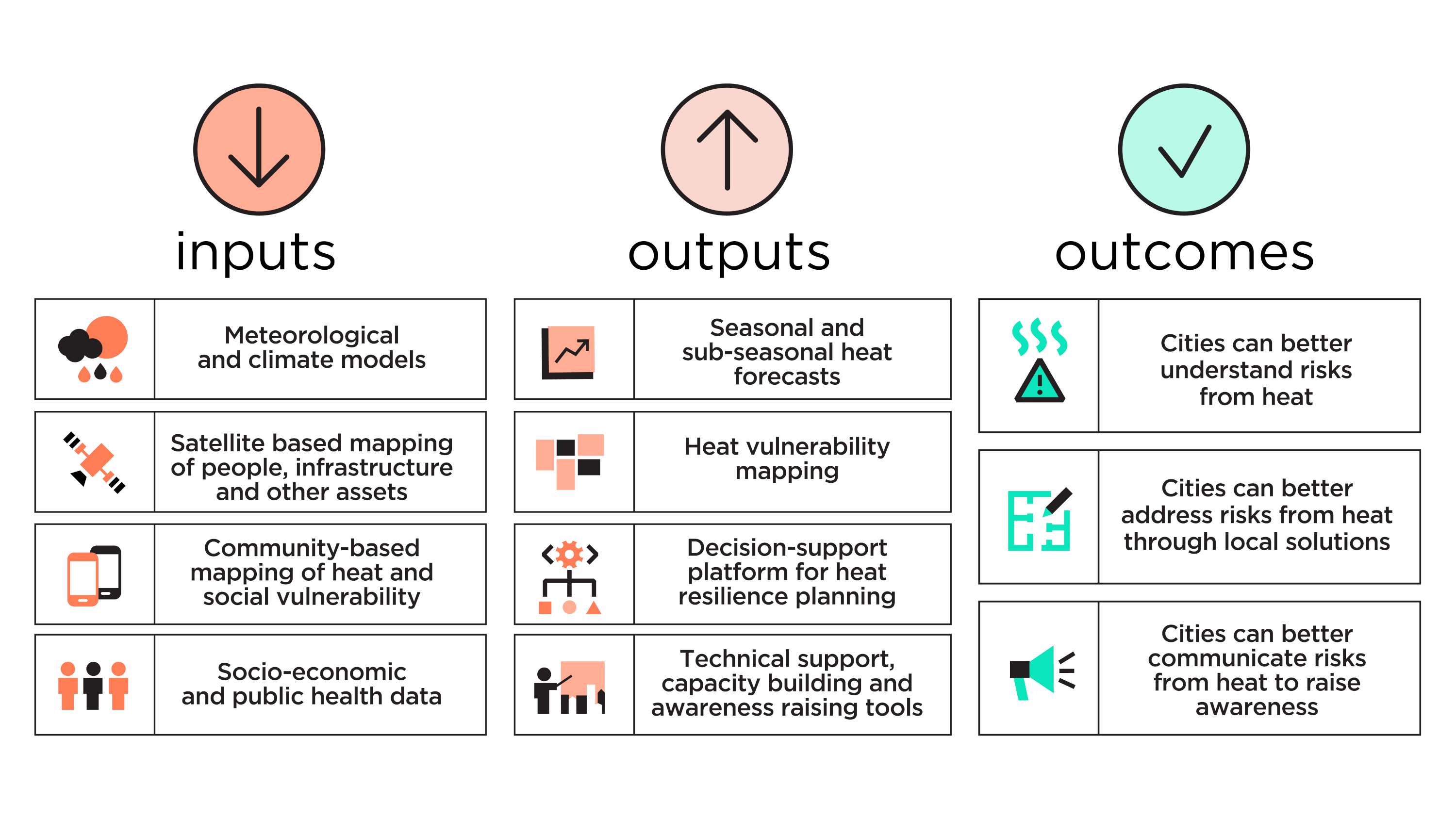About
> GEO is joining forces with partners around the world to develop the Global Heat Resilience Service, aiming to help every city understand the dangers of extreme heat. With this transformative service, cities will be able to access valuable data, information, and insight to develop better plans for managing extreme heat events, protect people’s health, and reduce the impact on local economies. ## THE IMPACT OF HEAT ON HEALTH AND SOCIETY Hot days and extreme heat events are becoming more intense and more frequent. Cities and urban areas are particularly affected due to an Urban Heat Island effect that can increase temperatures by up to 20 degrees Fahrenheit. This extreme heat poses a serious health threat, causing about 500,000 extra deaths a year globally, and is particularly dangerous for vulnerable groups like the elderly, pregnant women, young children, and people with chronic health conditions. Extreme heat can also worsen air quality and increase disease spread, workplace injuries, and mental health issues, as well as disrupting key services like energy and transportation. Economically, heat stress could cost the global economy $2.4 trillion by 2030, with poorer communities and countries suffering the most. Urban areas in developing regions face the greatest challenges due to limited resources to combat these climate risks. ## THE NEED FOR GLOBAL HEAT RESILIENCE > Death and illness can be prevented with tailored strategies and plans, such as investing in green spaces in vulnerable areas, and by improving early warning systems, as supported by the [UN’s Early Warning for All initiative.](https://public.wmo.int/en/earlywarningsforall) Cities often lack the resources and data necessary to develop effective heat resilience strategies. The Global Heat Resilience Service aims to address this gap. It's not just about providing early warnings; it's about equipping cities with the tools and information needed for comprehensive heat risk management. This includes understanding local climate patterns, health impacts, infrastructure vulnerabilities, and socioeconomic factors. By harnessing advanced technology, cloud computing, and AI, the service will guide cities in identifying vulnerable populations and planning effective responses, thus offering a proactive solution to a growing global challenge.  It will be more cost-effective to prepare cities for extreme heat now than to deal with the impacts later. Currently only around 7-8% of global urban climate financing needs are being met, with far less still flowing to urban areas in the global south. A key barrier to accessing this climate finance is a lack of appropriate data and information with which to develop feasible plans and projects to mitigate risks. The Global Heat Resilience Service aims to fill these gaps. Using the latest digital tools and leveraging the power of cloud computing and Artificial Intelligence, the service will help cities to understand when and where extreme heat events will occur, who will be most vulnerable, and what actions can be taken to manage risks. ## THE GLOBAL HEAT RESILIENCE SERVICE The Global Heat Resilience Service will provide essential, city-specific information to help improve public health, the economy, and urban development in response to extreme heat, now and into the future. Using a mix of data sources, including satellites, field measurements, local surveys, and geospatial data, the service will help cities to better understand and prepare for heat-related risks. This service will offer trusted, free, and open data specific enough to pinpoint variations in heat risks from street to street, neighborhood to neighborhood. Cities will be able to integrate their own data, enabling them to make informed decisions before and during extreme heat events. The insights from this resource will assist and guide city leaders in creating policies, plans, and investments to reduce heat-related health issues and economic impacts. Citizen science and data collection initiatives will empower communities, particularly young people, to actively contribute to developing knowledge on heat vulnerability in their cities. This includes spreading awareness through educational programs in schools and colleges, creating opportunities to boost local technology sectors, and developing data-driven apps through hackathons.  ## WHO WILL USE THE SERVICE?


